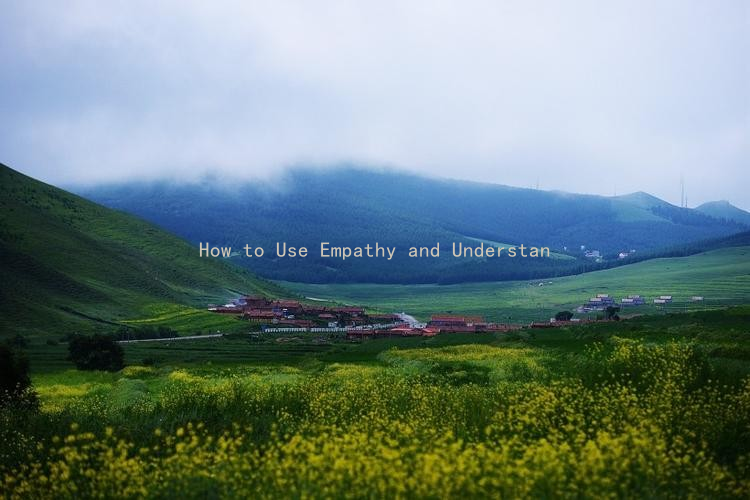Transforming Intimacy: Key Relationship Skills from the Art of Education in Sexuality
Transforming Intimacy: Key Relationship Skills from the Art of Education in Sexuality
In the realm of modern relationships, intimacy goes far beyond the physical; it encompasses emotional connection, communication, and mutual respect. Understanding the nuances of intimacy is essential for fostering healthy and fulfilling relationships. Drawing from the principles found in the art of sexuality education, we can identify key relationship skills that help transform intimacy between partners.
1. Open Communication
At the core of any successful relationship lies effective communication. Couples must cultivate an environment where both partners feel comfortable expressing their feelings, desires, and boundaries. Regularly discussing topics related to intimacy, such as preferences and concerns, not only enhances understanding but also strengthens the bond between partners.
A practical suggestion is to set aside time for relationship check-ins. During these sessions, partners can discuss what’s working, what could improve, and share any concerns in a safe and respectful environment. This practice not only builds trust but also reinforces the idea that both partners are on the same team, working towards a common goal.
2. Understanding Consent
Consent is a pivotal aspect of any intimate relationship. It is vital to recognize that consent is not a one-time agreement but an ongoing dialogue that evolves with the relationship. Educating oneself about the importance of affirmative, enthusiastic, and coherent consent can significantly enhance intimacy.
Partners should regularly discuss their comfort levels and boundaries, ensuring both feel heard and respected. This understanding fosters a deeper emotional connection, as partners feel valued and appreciated for their choices and preferences.
3. Emotional Vulnerability
Intimacy thrives on vulnerability. Sharing fears, dreams, and insecurities can create a deeper emotional bond between partners. However, being vulnerable requires trust and a willingness to be open. Engaging in activities that encourage vulnerability, such as sharing personal stories or feelings about past relationships, can facilitate this process.
Exercises like journaling about emotions or practicing sharing evenings, where each partner discusses something significant about their life, can help build this emotional intimacy. As partners become more comfortable revealing their true selves, the relationship deepens, cultivating a safe space where both individuals can grow together.
4. Active Listening
Active listening is crucial for any intimate relationship. It involves not only hearing what the other person says but also understanding and responding to their feelings and needs. Practicing active listening means giving full attention to your partner, refraining from interrupting, and validating their feelings.

To refine this skill, partners can practice reflective listening exercises. One partner shares their thoughts, and the other paraphrases what they’ve heard to ensure understanding. This not only clarifies meaning but also shows respect and validation for each other’s experiences.
5. Cultivating Empathy
Empathy is the ability to understand and share the feelings of another. In intimate relationships, cultivating empathy can lead to profound intimacy. Being attuned to your partner’s emotional state and responding compassionately can create a sense of safety and closeness.
Activities such as participating in community service together or engaging in role-reversal games can enhance empathy. By stepping into each others shoes, partners can gain insights into each other’s perspectives, fostering a deeper connection.
6. Creating Intimate Rituals
Rituals are a powerful way to strengthen intimacy. Whether it’s a weekly date night, a daily check-in, or even a shared hobby, these rituals create opportunities for connection. They provide a consistent platform for partners to express affection and reinforce their commitment to one another.
Making rituals personal and unique to the couple can increase their significance. For instance, cooking a meal together while discussing the days events, or dedicating a certain day each month to celebrate milestones, can strengthen the couples bond.
7. Prioritizing Quality Time
In a busy world, carving out quality time for each other is essential for maintaining intimacy. This time should be free from distractions and focused on reconnecting. Whether through shared activities or simply sitting together in silence, prioritizing these moments reinforces the importance of the relationship.
Establishing tech-free zones during certain times of the day can help enhance quality interactions. Engaging in shared interests—like hiking, reading together, or playing games—encourages growth and enjoyment in the relationship.
Conclusion
Transforming intimacy within a relationship requires intentional effort and the development of essential skills. By focusing on open communication, understanding consent, cultivating emotional vulnerability, practicing active listening, fostering empathy, creating meaningful rituals, and prioritizing quality time, couples can build a strong foundation of intimacy. Just as educators strive to enrich lives through knowledge and understanding, individuals can enhance their intimate relationships by applying these principles derived from sexuality education. In doing so, they pave the way for deeper connections, increased satisfaction, and a more fulfilling partnership.





